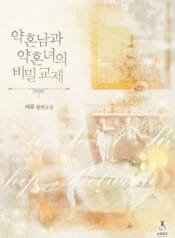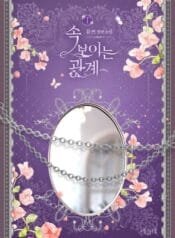Chapter 6.4
For several days now, Mr. Wharton had been visiting Miss Maron every afternoon. Maurice wondered whether Mr. Wharton might be seriously courting her. However, it wasn’t his place to pry into personal matters, so he cautiously asked while reviewing documents beside Mr. Wharton.
“May I ask why you’ve been visiting Baron Maron’s residence?”
The answer he received was unexpected.
“I’ve been teaching her piano.”
Maurice wondered if there was some hidden meaning behind those words. Did “teaching piano” serve as a euphemism for romance?
“Mr. Wharton, you’re teaching Miss Maron how to play the piano, is that correct?”
“Yes.”
The simple answer sounded indifferent. Mr. Wharton frowned as if he had found something unsatisfactory in the documents and picked up a pen. Maurice wanted to ask more questions but refrained, fearing he might interrupt. However, he truly wanted to ask just once more.
“So, you’re only teaching her piano, is that correct?”
Mr. Wharton, who had just scribbled something with his distinctive freehand style, finally turned his eyes to Maurice. Maurice interpreted Mr. Wharton’s hesitation as wondering whether it was safe to tell the truth. After all, if news of an affair reached Lady Wharton’s ears, it would certainly be troublesome.
Maurice smiled warmly, sending a reassuring look to Mr. Wharton, as if to say, “You can trust me. I’m always on your side.” To which Mr. Wharton returned the smile.
“Then what else should I teach her besides piano?”
It was a question that pierced Maurice’s thoughts.
What else?
Maurice imagined Mr. Wharton teaching Miss Maron something other than piano—a scenario that, though improper, crossed his mind. Somehow, it seemed more fitting for Mr. Wharton to teach something less innocent, like “This is how you kiss…” rather than “Curve your fingers when playing the piano.”
Maurice quickly stopped his inappropriate imagination when he noticed Mr. Wharton’s narrowed gaze.
“No, it’s nothing.”
“What’s nothing?”
The playful tone in his voice carried a hint of amusement. Maurice simply replied, ‘It’s nothing at all.’
“Is Miss Maron good at playing the piano?”
Maurice hurriedly changed the subject, fearing that Mr. Wharton might inquire about his earlier thoughts.
“She works hard. Those who work hard deserve praise.”
Mr. Wharton spoke as if defending Miss Maron, a soft smile spreading across his lips. Maurice picked up on a clue. Those in love often smiled when speaking about their beloved, even if it was only loosely related.
“I’ve heard you’re skilled at playing the piano, Mr. Wharton.”
Maurice hadn’t personally seen Mr. Wharton play the piano but had learned about it from Mrs. Miller. Having worked at the estate for years, Mrs. Miller often shared stories about how brilliant Mr. Wharton had been as a child.
“They say you memorized sheet music as soon as you learned Do-Re-Mi.”
“Is that so?”
Mr. Wharton seemed indifferent to his talent, much like how one might feel no excitement about a face they see every day. Maurice thought this might be the case.
“And after that, the proud young master Frederick couldn’t bear the humiliation and never played the piano again.”
Maurice repeated what he had heard from Mrs. Miller. Frederick Sop was Mr. Wharton’s cousin. As children, Frederick often spent time at the Wharton estate, but now they were distant, like many cousins.
Mrs. Miller disliked the Sop family, claiming they were full of aristocratic entitlement. The disdain grew when rumors spread among the Sop family servants that the Wharton family had essentially bought social status by marrying off a daughter with a large dowry.
The young master of the Sop family, who always had to be the best, felt deeply humiliated by a little boy who played the piano better than him. After realizing he could never outshine the cheerful boy who charmed adults with his smiles, he stopped visiting altogether, Mrs. Miller speculated.
“That’s true.”
The brief reply brought the conversation to a halt, leaving only the sound of papers rustling in the quiet study. Maurice thought Mr. Wharton seemed lost in childhood memories and regretted bringing up the topic. Just as Maurice was about to focus on his work, Mr. Wharton suddenly asked:
“How is Helen doing?”
The unexpected mention of his lover’s name left Maurice momentarily confused before he answered.
“…She’s doing well.”
As Maurice replied, he recalled Helen’s face, smiling as she received a bouquet of flowers. It was the day Maurice had left work early to visit Helen with a bouquet meant for Mr. Wharton.
“When I brought her the bouquet, she was so surprised. Since the card attached to the bouquet had your name, Mr. Wharton, I couldn’t lie and say I bought it myself.”
Maurice smiled unconsciously as he reminisced about the moment he shared with Helen.
“She said she never imagined receiving so many flowers in her life.”
“I’m glad she liked it.”
“She placed each flower in a vase, but eventually ran out of vases and had to use cups and bowls. The dining table was so full of flowers that there was no room for plates. We had to hold our cups throughout the meal, like this.”
Maurice mimicked holding a cup high and laughed. He was so engrossed in the story that he didn’t realize Mr. Wharton had deliberately brought up a topic Maurice would eagerly talk about. Edgar hoped Maurice’s story would keep unnecessary thoughts at bay. But just as a broken dam cannot stop the flow of water, memories of the past surged forward.
The proud young master Frederick. Now addressed as Mr. Sop, Edgar’s cousin had been the epitome of a “young master” in Edgar’s eyes during childhood. Unlike an orphan who had just learned to dress properly, Frederick was always impeccably dressed.
“Are you illiterate?”
Frederick’s innocent laughter filled his eyes as he watched Edgar struggle to read. On the day an elderly Wharton asked Edgar to read a letter aloud, Frederick snatched the letter from Edgar’s hands.
“Grandfather, Edgar can’t read. His mother was sick, so she couldn’t teach him.”
The innocence of children, untainted by lies, could sometimes be cruel. Once a rumor spread, it was unstoppable.
“Edgar, is it true you stayed with your deceased mother for days? Did Lady Wharton pick you up from the streets?”
Edgar instinctively knew he couldn’t escape the eyes looking down on him, no matter how clean his clothes were. There was only one way out: to ensure no one found out.
He had to hide the fact that beneath his fine clothes, he was just a homeless orphan. Only then could he belong—under the name Wharton, in the grand, castle-like house.
The day Edgar flawlessly performed a piano piece he had practiced day and night in front of the Wharton family elders, Frederick Sop could no longer say, “He doesn’t know how to read sheet music or what Do and Re mean.” The adults unanimously praised him.
“You’re so brilliant, Edgar.”
Edgar learned how he needed to live. So, he smiled brightly, like a clever, charming child who deserved love. But when his eyes met Frederick Sop’s piercing gaze, he felt as though the truth would spill out.
“That boy isn’t brilliant at all. He’s just desperately trying to become a young master.”
Frederick Sop didn’t say it aloud. But Edgar heard it. Even if no one said it—even if he deceived everyone—Edgar knew the truth himself.
Lies persisted for a long time.
The pen tip, having lost its direction, left a dark blot on the document. Edgar pulled his hand away, but the stain had already spread, leaving no way to erase it. He rubbed his tired eyes, worn out not from work but from lingering thoughts. His mind, filled with negativity, sought balance by focusing on the person connected to the word “piano.”
“Now, Mr. Wharton, you must think of me too. At least when you’re at the piano.”
As Edgar exhaled, laughter slipped out instead. He recalled the firm grip on his shirt collar and the lips that had pressed against his. Lost in thought, Edgar found himself smiling. The clockwork of his mind, rewinding into the past, stopped at one particular scene.
“Princes all wear crowns. Mr. Wharton, you need a crown too.”
Whenever those clear eyes looked up at Edgar, the words seemed true at times, as if an actor on stage had blurred the lines between their role and their true self. Edgar set aside the tiresome stack of papers and stood up.
As he lifted the coat draped over the chair, Maurice’s gaze followed him.
“Where are you going?”
“To Miss Maron.”
It was the same answer he had repeated for days.
Edgar slipped his arms into the jacket with ease. If being Natalie’s prince was a role confined to the stage, he didn’t want to leave it. It felt as though that place was his rightful spot—a place where someone awaited him.
The past was merely the past. There was no need to revisit already awakened nightmares. Yet, there were nightmares that refused to fade, like the reappearance of Frederick Sop before Edgar’s eyes.
Frederick Sop was also a guest invited to Mrs. Mars’s recital.







